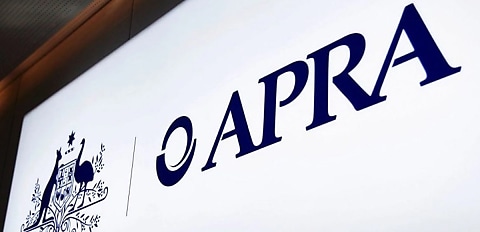Treasurer Jim Chalmers announced the update to HELP debt guidance on 13 February, saying that ASIC and APRA will be updating lending rules to allow for those with student debt to “responsibly take out a mortgage and buy a home and also unlock the construction of more units.”
Now, APRA has released a letter that clarifies the changes, expected to take effect from 30 September 2025. According to the regulator, the reforms will apply to all deposit-taking institutions.
The proposed adjustments are:
- Removal of HELP debt from DTI reporting. APRA proposes an amendment to the reporting definition of DTI so that HELP repayments are not treated as debt for reporting purposes. This amendment recognises the income-contingent nature of HELP debts.
- Treatment of HELP in serviceability assessments. APRA proposes to clarify in guidance that it is reasonable, by exception to internal serviceability criteria, for an ADI to remove HELP repayments where a borrower is expected to pay off their HELP debt in the near term through the compulsory repayments deducted from gross income. This exception would be on the basis that the borrower will largely be unaffected by the repayments over the course of their mortgage, given the near-term and income-contingent nature of the debt. APRA expects exceptions to be determined by banks in accordance with their internal lending policies, risk appetite, and after considering the individual circumstances of a borrower. APRA would consider that exceptions for HELP debts that are expected to be fully repaid within 12 months would not be unreasonable.
APRA member Therese McCarthy Hockey said in a statement that the changes will allow for increased flexibility, helping more people start their home ownership journey.
“APRA appreciates the important role of the Australian banking system in extending finance to creditworthy borrowers as well as the increasing difficulty many homebuyers face purchasing a home,” she said.
“The changes we are proposing today should support a more consistent approach across the sector by confirming the flexibility available to banks to consider the individual circumstances of borrowers with HELP debts. They may also help make it a little easier for some borrowers with HELP debts to purchase homes at an earlier time.”
APRA has encouraged feedback on the proposal. Written submissions should be sent to
What brokers think
Commenting on the proposed amendments, Home Loan Experts’ broker Sheng Ye said the plan has holes.
“Policy wise, it’s a band-aid solution. It won’t solve the root issue because when the young people lodge their tax returns, they still need to make HECS debt repayments based on their income level. The debt is still there for them to repay,” Ye said.
A better solution, according to Ye, is to not “peg the HECS debts to the inflation rate each year. Under the current scheme, each year the HECS debt will increase by the inflation rate; for example, if I owe $30,000 in HECS debt, and this year’s inflation rate is 3 per cent, my HECS debt will increase to $30,900. Which will be a further burden.”
Further, Home Loan Experts’ senior mortgage broker Jonathan Preston believes there is a larger issue at play around affordability, labelling the exemption for students “unfair”.
“I hate that students are being selectively targeted but I also dislike that this means other normal borrowers are now going to be treated unfairly. For example, what about someone who used their cash savings to pay off their HECS debt recently? Can they have that reinstated and get the cash back?” he said.
“In the end, the excessive buffers are what are causing issues for all borrowers and I don’t see how ignoring massive student debt for some and not other kinds of debt for others is fair. For example, this screws over all the tradies, presumably. They didn’t have to take out HECS debt, or if they did it was not much and didn’t take long to pay off.
“What about anyone who never got to go to uni or borrow the money for it – people who started working full time at 17? “I think a [fairer] policy would be to use a lower tax rate for everyone else, as an equaliser. Or your APRA buffer could be lower if you have no student debt.”
While this policy will certainly be a welcome move for those with HECS debts, there is a larger issue that needs tackling around affordability. Still, any reform that helps young people into homes easier is sure to be welcomed.
“But I think for younger people, government needs to consider other economic factors. HECS is just a small piece of the puzzle. Government should focus on House prices, serviceability buffers, and other excessive buffers that block people from purchasing their first house,” said Home Loan Experts’ mortgage broker Siddhartha Bajracharya.
“Right now, most of the young clients who are entering the workforce receive entry-level salaries and based on their current borrowing power from that – after adjusting the serviceability buffers – they can’t find any properties they wish to buy.”

